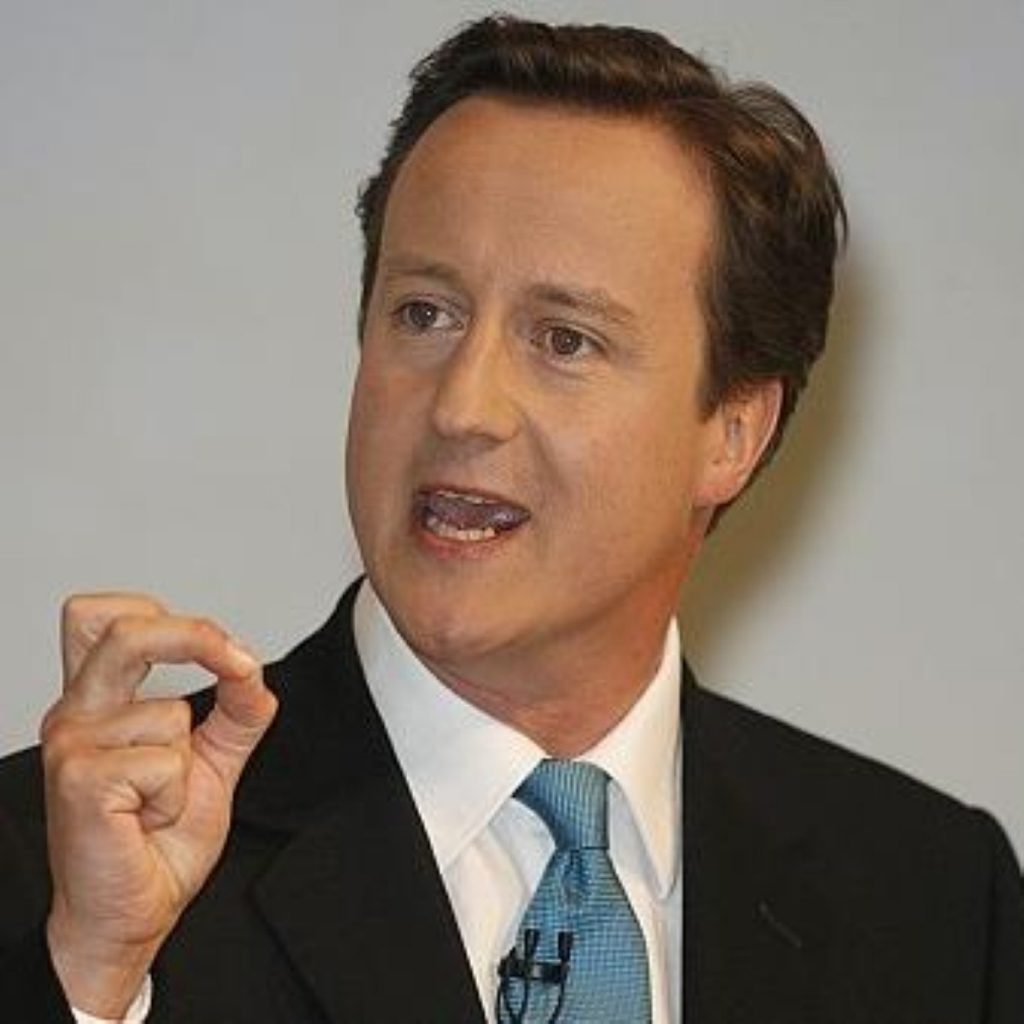Cameron refuses to commit to referendum on EU treaty
David Cameron has today refused to commit the Conservative party to a referendum on the EU treaty if they win the next general election.
In a press conference today, Mr Cameron said he would be continuing pressure on Labour to hold a referendum on the EU treaty, but repeatedly refused to commit his own party to the same demands.
Mr Cameron dodged questions, arguing it would be conditional on the treaty being ratified and the Conservative’s losing a vote in both houses of parliament.
But the referendum campaign looked to be backfiring today, as Mr Cameron was accused of hiding behind a series of hypotheticals, in order to avoid having to act upon his own demands at some point in the future.


Mr Cameron is also said to be under a pressure from his own MPs to practice what he preaches.
They argue if a referendum is right now, and the Lisbon treaty is fundamentally wrong, then the leader should be able to decisively say whether the Conservatives would attempt to renegotiate the treaty if they were in power.
Joined by some influential arms of the media, the Conservatives have been unrelenting in their campaign to force Labour to back down over the treaty.
They insist it is exactly the same as the old constitution rejected by French and Dutch voters in 2005 and transfers massive increments of power to Brussels.
Labour maintain the constitution has since been abandoned, and is now an ‘amending treaty’.
The debate was intensified last week as Gordon Brown agreed the terms of the treaty with European leaders after a two-day summit in Lisbon.
The treaty will be formally signed in December, and must then undergo a complex ratification process within the respective parliaments of all member states (excluding Ireland, which will be having a referendum).
It will not come into effect until 2014, Mr Brown confirmed yesterday.
In the aftermath of the Lisbon summit, Gordon Brown has repeatedly tried to clarify why he believes the treaty is beneficial for Britain, claiming it will encourage prosperity, produce more jobs, aid environmental security and protection from terrorism.
He says the treaty is necessary to accommodate the needs of ten new member states, who joined the EU when it was expanded in 2004.
The prime minister insists Britain’s vital national interests have been protected and the so-called ‘red lines’ have been secured.
According to the government, these red lines will protect British law from EU changes.

